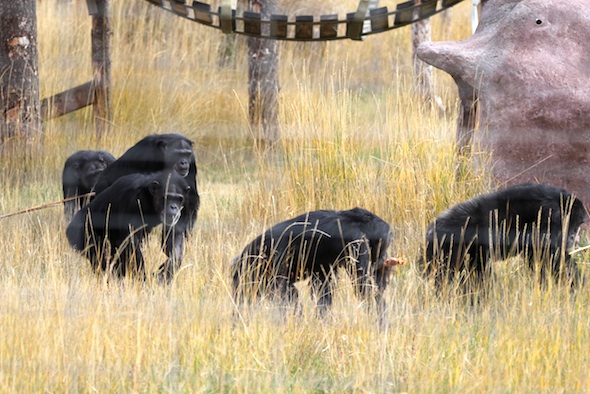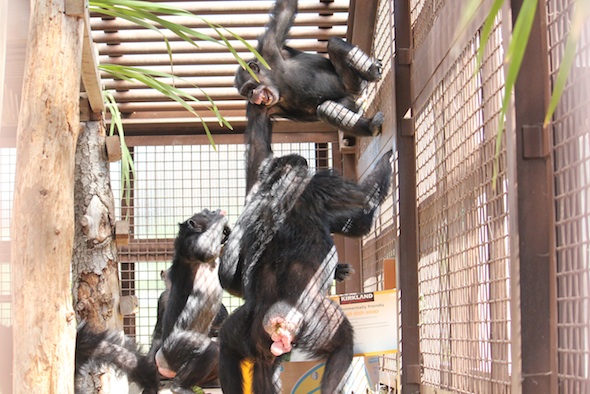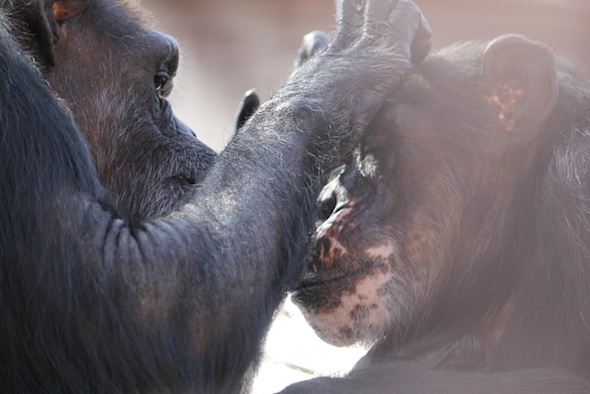Chimpanzees are not primarily, by nature, solitary but rather highly social creatures. Free-living chimpanzees in Africa are part of communities, groups that can range from few individuals to many and are subject to a hierarchical social structure. Captive chimpanzees do not always exhibit behaviors identical to those of their free-living relatives, however, the characteristics of group living are shared if modified by their unique experience. The benefits of group living vary, of course, depending on the individual, the position they might occupy within the social structure of a given group, and the particular circumstances of each group but, overall, the value of community cannot be overstated.
Community provides security and safety (as Debbie pointed out recently) by giving you backup in uncertain situations:

Community provides a structure that helps maintain equilibrium by setting limits on socially acceptable behavior:

Community provides family and friendship, a safe and supportive environment in which to live and grow: 
In a culture that values individuality so highly there is, I think, much we can learn from chimpanzee culture. By embracing community we become invested and it is possible to accomplish so much more within a strongly motivated group than alone. Community can be large or small, inclusive or exclusive but I choose to value it for the positive potential it lends. Thank you for being a part of the community that provides care to these chimpanzees, we cannot provide sanctuary alone.
I leave you today with these words of wisdom from Dr. Seuss: “Unless someone like you cares a whole awful lot, nothing is going to get better. It’s not.”




